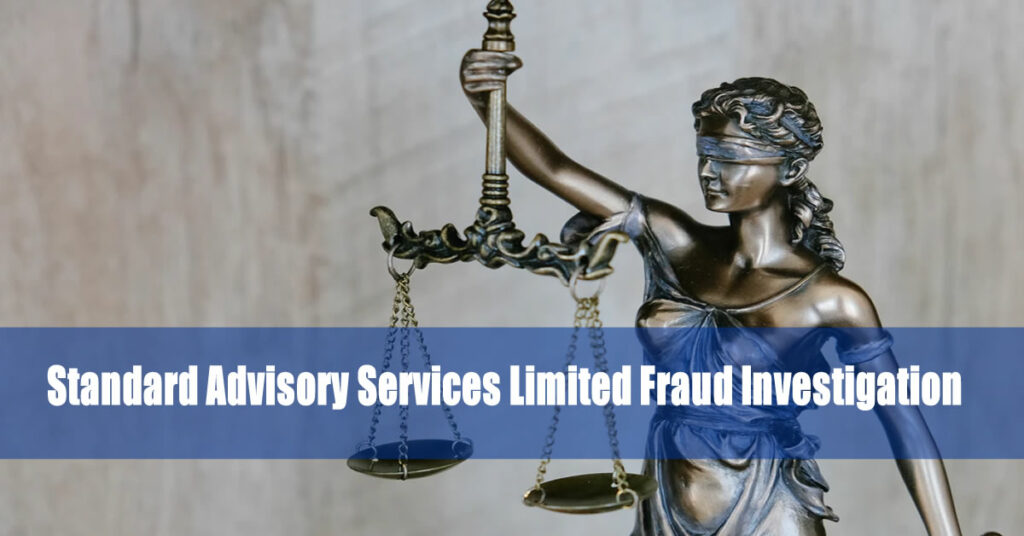Christopher Herwig and Gregory Lindberg, North Carolina-based executives of Standard Advisory Services Limited, an investment advisory company based in Malta, have been charged, along with their firm, by the Securities and Exchange Commission (SEC) for perpetrating a $75 million fraud on clients for the purpose of enriching their companies and themselves. The transactions have not been disclosed.
The complaint filed by the SEC has claimed that the duo, acting through Standard Advisory, fraudulently led their clients to conduct related-party transactions that were not in their best interest. According to the SEC, this amounts to a breach of fiduciary duties. The transactions are undisclosed, but the actions against which the complaint is filed are believed to have been conducted between July 2017 through 2018.
These transactions resulted in $21.4 million being generated as fees for Standard while over $57 million in client funds was misappropriated. Lindberg created complex investment structures through a web of affiliated companies to cover up their tracks and prevent fraud from coming to light. The ill-gotten funds were either diverted to other companies controlled by Lindberg or for paying themselves.
Osman Nawaz, Chief of the Division of Enforcement’s Complex Financial Instruments Unit, commenting on the case, and reiterating SEC’s commitment to the protection of investors, said, “We allege a massive fraudulent scheme, involving unique financial structures and various complex investments, orchestrated by the defendants for their own benefit over their advisory clients’ benefit. Today’s filing demonstrates that the SEC will take action to protect investors from investment advisers who attempt to evade fundamental fiduciary responsibilities.”
The SEC’s complaint, which was filed in the U.S. District Court for the Middle District of North Carolina, charges Standard Advisory, Herwig, and Lindberg with violating the antifraud provisions of the Investment Advisers Act of 1940. The complaint, filed in the U.S. District Court for the Middle District of North Carolina, seeks penalties, prejudgment interest, and permanent injunctions in addition to disgorgement.
Kevin Wisniewski, Craig McShane, and Kristine Rodriguez conducted the investigation on behalf of the SEC. They were supervised by Ana D. Petrovic, of the Complex Financial Instruments Unit and the Chicago Regional Office. Kevin Wisniewski and Alyssa Qualls of the Trial Unit will lead the litigation.
Any investor, at any time, is at risk of falling victim to a stock broker scam. To prevent falling prey to it, you should be aware of the warning indicators to keep an eye out for.
Misrepresentation
Table of Contents
When stockbrokers give their clients false or misleading information, they are committing fraud. It’s against the law and can result in major financial damages.
It is recommended that you seek the advice of an attorney if you suspect you have been the target of a scam of this nature. The FINRA arbitration panel can be convinced of your case with the assistance of your investment attorney.
Brokers are prohibited from making any false or misleading representations under the Securities Exchange Act of 1934. This includes concealing a potentially hazardous investment. Use of bogus instruments and assurances of guaranteed returns are two frequent examples of deception.
FINRA outlines rules for public relations by broker-dealers. These regulations are in place to safeguard consumers’ interests and maintain the marketplace’s stability.
Brokers have an ethical obligation to look out for their client’s best interests at all times. On the other hand, they could be enticed to increase their commission on your account by concealing important facts. It’s a fact that you take a chance on whatever you invest in. A trustworthy broker will only agree to represent you in a deal if doing so will help you achieve your objectives.
You may be able to get your money back if you lose it due to stockbroker fraud. An investment option that could have saved you money was overlooked by your broker, for instance.
All sorts of safeguards for the general public can be found in the SEC’s regulations. Among these is Rule 10b-5, which creates a private right of action for victims of fraud.
These regulations were enacted to safeguard customers from dishonest bank employees. You can seek compensation from the Financial Industry Regulatory Authority (FINRA) if your broker has misled you.
Restitution for an Ill-Advised Investment
There may be recourse for those who have lost money due to their stock broker’s poor advice. Consultation with a FINRA arbitration attorney might help you decide if you have a case.
It is the obligation of stock brokers to advise their clients on investments that are appropriate for them. But not all financial planners adhere to this rule. A case of fraud may exist when a broker does not propose a particular investment. The best protection an investor can take against making poor financial decisions is to arm themselves with knowledge.
Unsuitable investments typically involve a great deal of danger. That’s asking the investor to take on more financial risk than they’re comfortable with. Especially if the investor is getting close to retirement, they should never be pushed into a high-risk investment. Investors should not take unnecessary risks with their money but rather build a portfolio of safe and low-risk products.
You should consult a lawyer with FINRA arbitration experience to assess your situation. In addition, he or she can compile the evidence you need to support your case.
Stockbroker scam victims have a right to full restitution. Your attorney can assist you in collecting compensation through a FINRA arbitration award or a settlement reached between you and your brokerage firm.
There is a tight code of ethics that brokers must follow. A broker can face serious consequences if they fail in this responsibility.
A case of fraudulent misrepresentation may exist if your broker recommended a high-risk investment when your financial situation did not warrant such a move. Your broker may also have under-researched the potential dangers of an investment. A broker could be fined if they are proven to have made false claims about an investment or not done their homework.


